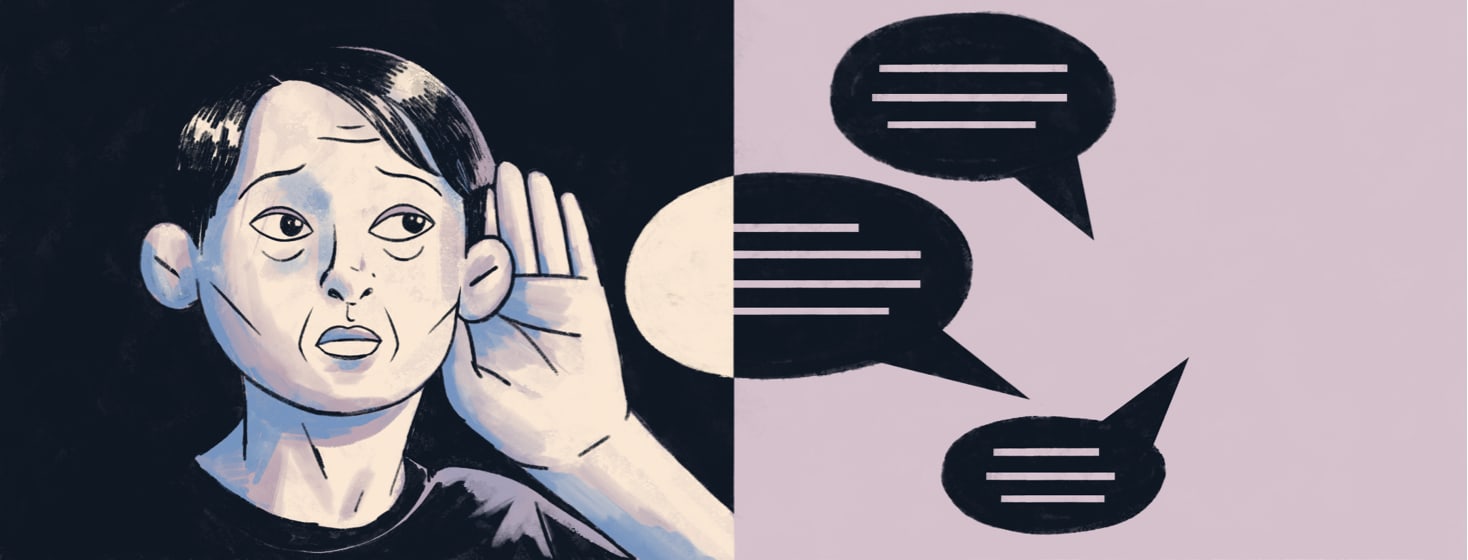Lupus and Hearing Loss
Reviewed by: HU Medical Review Board | Last reviewed: March 2021 | Last updated: April 2024
The exact rate of hearing loss among people with lupus is hard to pinpoint. Some studies estimate that as few as 6 percent of people with lupus have lost some hearing. Other studies put the number at 70 percent. Sometimes a person has no idea they have lupus until they begin to lose hearing.1,2
Hearing loss with lupus often starts in 1 ear before spreading to the other. It usually affects high-pitched sounds first before moving on to mid-range and low-pitched sounds. Lupus-related hearing loss can also come with other symptoms that are signs of damage to the inner ears. These symptoms include:1,3
- Hissing, ringing, or rushing sounds in your ears (tinnitus)
- Dizziness, also known as vertigo
- Aural fullness (the feeling you get before your ears “pop” in an airplane)
If you start to experience these symptoms, tell your doctor.
Why does hearing loss occur?
Much of the time, hearing loss with lupus happens because something is wrong with the inner ear. Hearing loss that happens because the inner ears are not working is called sensorineural hearing loss (SNHL).1
One cause of inner ear damage in people with lupus is autoimmune inner ear disease (AIED). In AIED, the body’s immune system attacks the inner ear, causing damage that results in hearing loss. While it is possible to have AIED on its own, 15 to 30 percent of those with AIED have other autoimmune disorders. These other disorders include:4,5
- Lupus
- Sjögren’s syndrome
- Cogan’s syndrome
- Rheumatoid arthritis
- Psoriasis
- Vasculitis
Sometimes SNHL is very sudden, with severe or even total hearing loss taking place over 3 days or even a couple of hours. This type of sudden SNHL is also associated with having other autoimmune disorders.5
Some doctors think that sudden SNHL might be the result of vasculitis. Vasculitis happens when blood vessels are inflamed. It reduces blood flow, in this case to the inner ears. When blood flow to the inner ears is restored, hearing comes back. Unfortunately, even if hearing comes back, repeated bouts of vasculitis can cause permanent hearing loss.1
Vasculitis can be caused by antiphospholipid syndrome. In antiphospholipid syndrome, the immune system attacks fats called phospholipids in the blood cells. Phospholipids are needed for blood to clot. Antiphospholipid syndrome can cause many blood clots in different parts of the body. Antiphospholipid syndrome and high rates of antiphospholipid cells have been found in some people with lupus and SNHL.6,7
A 2020 study showed that antimalarial drugs like hydroxychloroquine do not cause hearing loss. People with lupus who were taking antimalarial drugs had no more hearing loss than those who were not.8
Treating hearing loss caused by lupus
The most common medicine for SNHL is corticosteroids. These reduce the inflammation that can cause vasculitis. They can also suppress the immune system so it does not attack the inner ears. Corticosteroids also raise blood pressure, which is usually bad for people who take them. But higher blood pressure may actually help with hearing loss by bringing more blood to the inner ears.1
Seventy percent of those with AIED can regain some hearing at first using corticosteroids. Unfortunately, the drugs become less effective over time. Only 14 percent of people with AIED may benefit from corticosteroids in the long term.9
Some people with lupus and hearing loss were able to recover some hearing after plasmapheresis. This process, also known as plasma transfer, removes antibodies that attack phospholipids from the blood.10
Anticoagulants can also be prescribed to increase blood flow to the inner ears. Immunosuppressants like cyclophosphamide can be used to keep the immune system from attacking the inner ears. These 2 types of drugs do not typically help recover lost hearing but can prevent future hearing loss.1
Monoclonal antibodies may also suppress the immune system so it does not attack the inner ears. These drugs have already been used to help treat lupus. Some people with lupus and hearing loss also respond well to cochlear implants and/or hearing aids.11,12
Finally, doctors have also seen some cases of sudden hearing loss end on their own. This may have happened because the hearing loss was caused by vasculitis that was temporary.1
Steps to protect your hearing
The best way to halt or fix hearing loss is to catch it early, so tell your doctor if you experience the following:13
- Difficulty hearing people in conversation
- Tiredness or stress from straining to hear others
- Needing to turn up the volume higher than usual when using your phone, playing music, or watching TV
- Not knowing where sounds are coming from
- Hearing better from 1 side than from the other
- Finding it hard to ignore or hear over background noise
- Talking more loudly than usual
